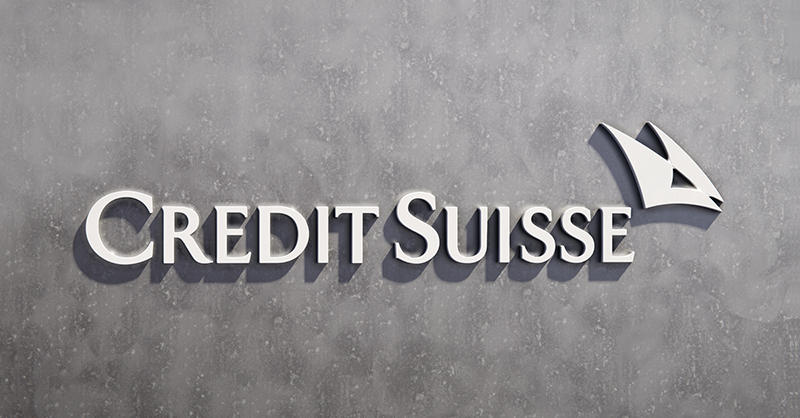Switzerland's Credit Suisse prosecution could herald a new era of enforcement
16 February 2022 16:46 by Phoebe Seers

Credit Suisse could become the first major Swiss bank to be found guilty of money laundering failures in its home country if prosecutors in an ongoing trial are successful.
The case over alleged money laundering lapses is remarkable in that it is the first major criminal prosecution of a Swiss bank in a country that puts its financial services sector above all others.
However, the recent appointment of a new Attorney General, who has said he will prioritize corruption and money laundering cases, could herald the beginning of a new era of enforcement in a country that was once notorious for shielding its banks' behavior from public scrutiny.
The trial opened at the beginning of last week and is scheduled to run until early March. Prosecutors accuse Credit Suisse of failing to have the necessary systems to prevent a Bulgarian drug trafficking gang, led by former Bulgarian wrestler Evelin Banev, from laundering around 146 million Swiss francs ($158 million) between 2004 and 2008.
A former employee, “E,” who was the relationship manager for the Bulgarians at Credit Suisse, is another defendant. Under Swiss law, she cannot be named.
E told the court that anti-money laundering wasn't the bank's priority at the time. It was common practice for wealthy clients to bring cash into Switzerland that wasn’t declared to authorities.
'Smurfing' deposits
The prosecution said that the gang used a money laundering practice known as “smurfing.” Multiple small cash deposits are made into bank accounts of multiple small sums of money, below the threshold that requires a deposit declaration.
Their indictment details dozens of instances of cash deposits — totaling 27 million euros ($31 million today) — to accounts controlled by Banev between 2004 and 2007.
The bank is accused of failing to fill “know your customer” (KYC) forms with sufficient diligence and allowing new business relationships to be opened without sufficient oversight. The bank’s compliance team was “haphazard and excessively restricted.”
In a statement, the bank said: “Credit Suisse unreservedly rejects as meritless all allegations in this legacy matter raised against it and is convinced that its former employee is innocent. The bank will defend itself vigorously in court.”
Statute of limitation
Prosecutors have already had one major setback: a 15-year statute of limitation means that the court can only examine events from February 2007 onwards.
But that hasn’t left them short of evidence, including documentation that showed the bank paid out 9.3 million euros to gang members in 2007. By this time Bulgarian authorities had opened a drug-trafficking probe into Banev, to which the bank’s compliance department had been alerted.
Credit Suisse will try to make the case that it is being judged against today’s standards for anti-money laundering compliance for actions that took place 15 years ago.
That argument is unlikely to clear the bank of any responsibility, a former veteran financial crime policymaker told MLex. Mark Pieth, formerly head of economic crime at the Swiss Ministry of Justice and a founding member of the Financial Action Task Force, said Switzerland enacted anti-money laundering legislation in 1997.
“It was clear back then you had to know your client and had to ask questions in strange circumstances. If a client was known as a mafioso, you certainly had to act — either by shutting down the account or by freezing the funds,” said the law professor from the University of Basel.
Nor would Credit Suisse escape liability by saying that those standards weren’t taken seriously in practice by the industry back then, said Pieth. “It doesn’t work like that. The rules were in place.”
Out in public
While the Swiss financial regulator Finma has previously fined banks for wrongdoing, the details of its decisions, including sometimes the identity of the banks, are often kept out of the public eye. This is why the Credit Suisse case playing out in open court is so remarkable.
If Credit Suisse loses this case, it would be the first guilty verdict against a Swiss bank in the country’s history. The offense falls under Section 102 of the Swiss criminal code, which details the circumstances under which a corporation can be found criminally liable.
Last December, the now-defunct Falcon Private Bank, headquartered in Zurich, became the first bank to be found guilty in court under Section 102.
That the only two criminal cases against banks reached court shortly after the appointment of a new Attorney General may not be a coincidence. Stefan Blätter, formerly head of police in the canton of Bern, was elected at the end of September last year. In interviews, he has said white-collar crime, corruption and money laundering were early priorities.
His predecessor, Michael Lauber, was forced to resign when it emerged that he had lied about private meetings he had with FIFA President Gianni Infantino while the football association was being investigated over suspected corruption.
The maximum fine that prosecutors in the Credit Suisse case can levy is 5 million France, but they are expected to seek to recover around 42.4 million francs in criminal proceeds.
While the OECD has chided Switzerland for its low maximum penalties, it will be cheered that the country is taking steps to prosecute banks at all.
At the moment, it’s unclear when the outcome of the trial will be made public. While the Federal Criminal Court in Bellinzona could issue a decision in early March, it could wait until the judgment is written, which could take weeks or months.
Related Articles
No results found
